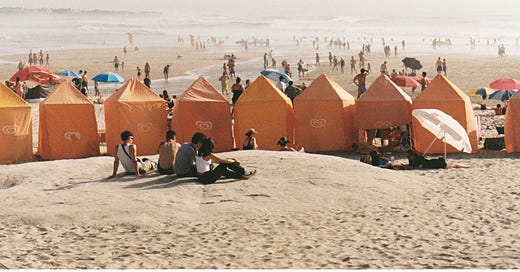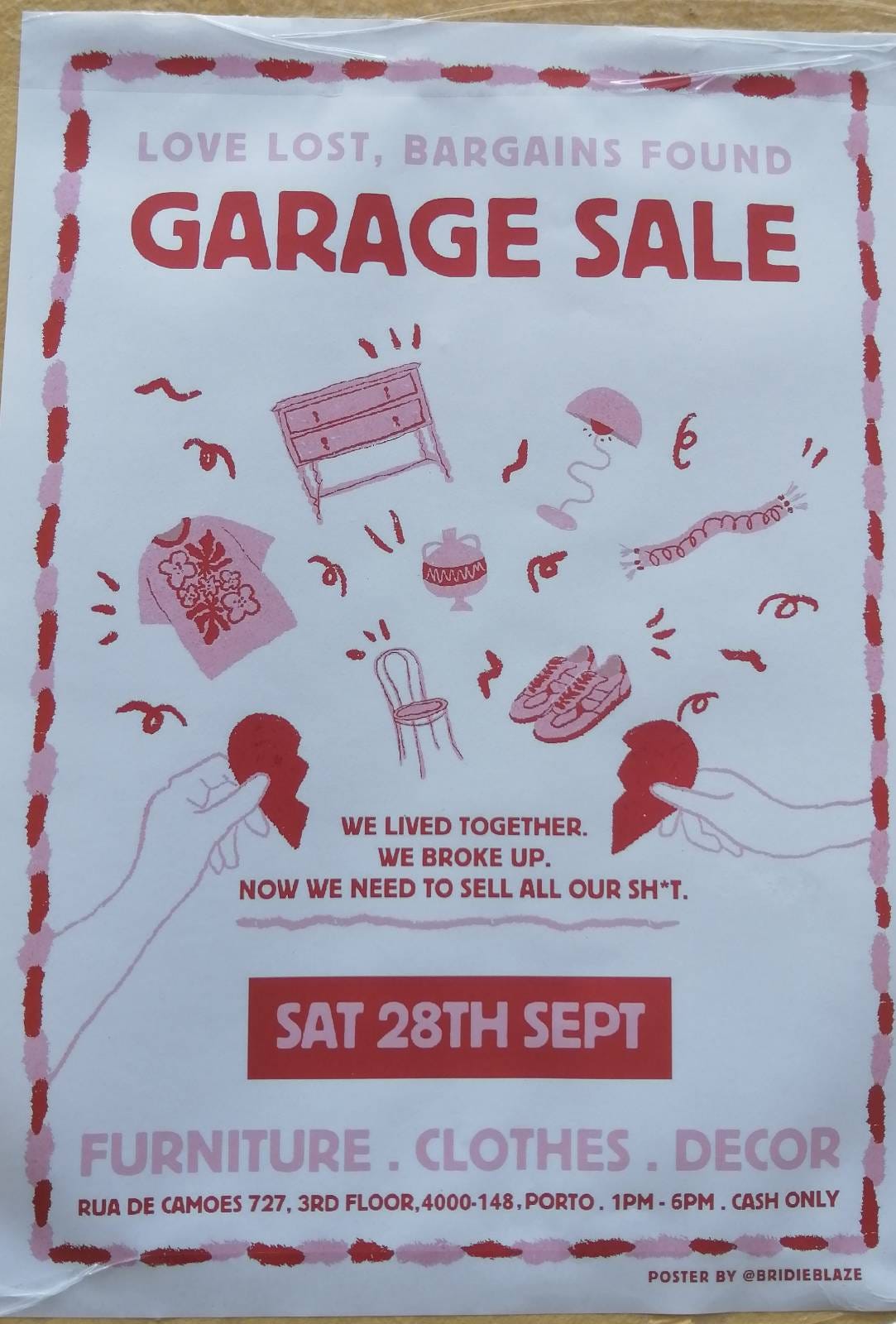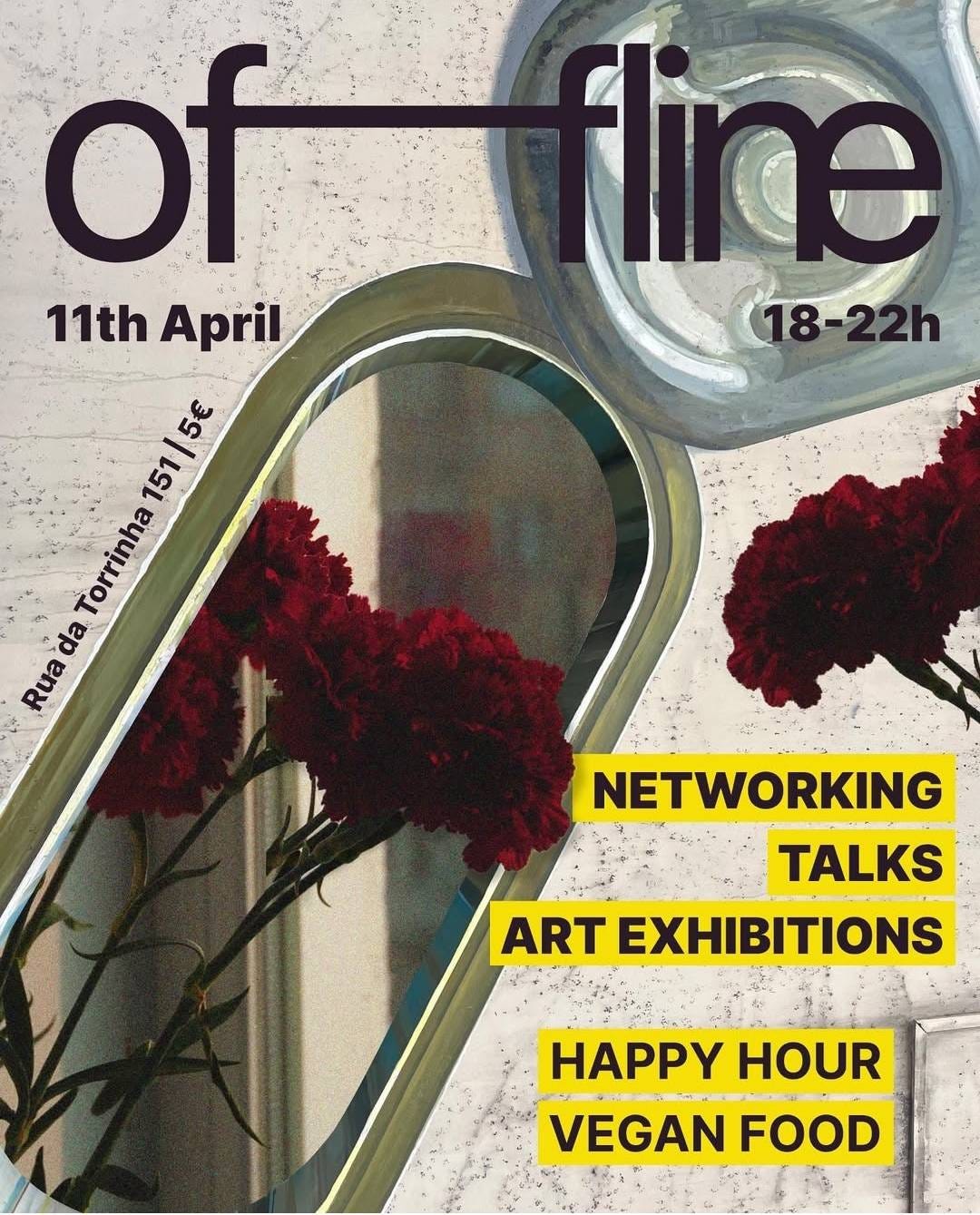How to socialise as an expat in Portugal: what no one tells you
A guest article by fellow Substacker and Porto resident, Alexandra.
Alexandra is a freelance editor and writer living in Porto, Portugal. She writes about language, online culture, and tech at Blog Therapy on Substack. You can also find her at Untested, where she is an editor, and on Bluesky and LinkedIn, where she’s just visiting. Get in touch to collaborate or follow her newsletter.
Online spaces dedicated to expat life are full of well-meaning advice on making friends: “join Bumble BFF”, “learn Portuguese”, “become a regular at your local café”, “just talk to people”. But what if you’re an introvert and you would rather drink bog water than introduce yourself to a stranger at a loud, overpacked student bar?
I’d like to share with you some introvert-friendly tips that have worked for me. My partner and I moved to Porto in mid-2020, between Covid-19 lockdowns, which, coupled with our introverted natures, meant we had to socialise on hard mode.
But now that we’ve been here for five years we consider ourselves to be well-integrated into our community. We meet friends a couple of times a week, we joined a climbing gym, and I’m part of a choir and a quartet. We’re lucky enough to be regulars at a few neighbourhood places. If I overbake, I can share it with a neighbour, who in turn invites us to his family barbecues and garden parties. The other day, someone stopped by to bring us a giant fennel just because.
That is all to say, it’s absolutely possible (even unavoidable!) to make friends in Portugal as an expat and an introvert.
First, however, a note on friendliness. We all have different definitions of it: for someone who grew up smiling at strangers on the street, many Portuguese might appear aloof, closed-off. But consider that these are simply two different ways of relating. Where I come from (a post-Soviet country) people will genuinely wonder what’s wrong with you if you go around smiling at everybody. Smiling is for friends and family, for people you know and like or for a happy occasion, like a street party. If you catch someone looking at you, you might smile back. From my experience so far, it’s similar in Portugal.
Early on, when social distancing was still the law of the land, I approached a stranger at the park asking to borrow a cigarette. Probably because they noticed I was lonely, they offered, along with the smoke, some sage advice: Portuguese people aren’t closed off, in fact they are very friendly. Friendships are usually close-knit and revolve around an existing core group outside of which people rarely venture. So you need to make the first move. If you get along well for a while, things start to open up and you can experience the renowned Portuguese friendliness.
So it might help to make it a habit of saying good morning and good afternoon to your neighbours (and to your grocer, and to the owner of the corner store, and to the guy you meet on your daily walk, and so on). You’ll notice how people slowly open up when you become a familiar face.
Now, on to the real advice.
1. The writing’s on the wall. Literally.
This is such an underrated one: pay attention to posters in your neighbourhood.
I don’t know about your area, and this might be more difficult in you live somewhere very remote, but the walls and shop windows on my street are plastered with a constantly-evolving rotation of colourful posters advertising: concerts, food pop-ups, yoga classes, exhibitions, obscure DJ sets, psychedelic therapy sessions, vegan sushi nights, coworking spaces, tattoo studios, garage sales, you name it.
There are also stickers affixed to poles, pipes, and electric boxes with notices ranging from cleaning services to breakfast meet-up apps (this one is available in Lisbon, for example).
I’m not saying you should go to all of these; I don’t. But pay attention to them and you might just find something you’re interested in. And, since these events are advertised so widely, it’s perfectly acceptable to go alone, socialise with other attendees, and leave early if you feel like it.
Many of these posters also include an Instagram handle for the business or venue organising the event. It’s useful to build up a collection of your favourites and check them regularly. This is a great way to feel integrated by staying up to date with what’s going on in your community. It can also provide discussion topics beyond the usual work and “where are you from?”.
Bonus tip: check out the business profiles your favourites are following online. You may find some unexpected gems (small galleries, cafés, events etc) in your area this way.
2. Everybody is offline.
This applies especially if you want to know where the locals hang out.
Many places in Portugal still operate on word-of-mouth advertising. The most interesting and eclectic places will have very little online presence beyond maybe an Instagram page, which you need to know how to search for in the first place. This is why showing up in person is important.
As an introvert myself, I understand this can feel scary, but try to start with events and places that accommodate single participants (rather than only groups or pairs) and leave room for spontaneous interaction: street markets versus restaurants, classes of some sort or coworking spaces versus rowdy bars.
This also applies to volunteering: find out if your area has any community gardens, associações culturais (cultural non-profits), animal shelters or a community centre where you could contribute your time and skills. Even if you’re not fluent in Portuguese yet, this can be a great way to create connections over a shared purpose—and to practice learning the language.
Also, because showing up in person everywhere is the done thing, you won’t stand out, which can be daunting as an introvert.
Bonus tip: when you do show up in person, keep an eye on event flyers. These are usually found near the cash register in places like small bookstores or yoga studios and are a great way of finding out about other unique activities in your area.
3. Join a coworking space for the wrong reasons
Join a coworking space, you’ve probably heard this a million times.
This is generally good advice, especially if you work remotely and spend most of your time at home, moving from couch to kitchen table to computer desk and back again. It’s a low-pressure environment where socialising is welcome (during breaks) but not mandatory, a sweet spot for many introverts.
But I recommend joining a coworking space with benefits: namely, one with eclectic out-of-hours activities. Often, these spaces also host lunches, dinners, language meet-ups, and various workshops, offering an ideal place to organically become a regular and make friends during these “extracurricular” activities.
For example, a coworking space near me hosts cook-offs, small art exhibitions, and grandma afternoons—every other Saturday, a group of elderly ladies from the neighbourhood volunteer their time teaching participants how to knit.
And, to tie in with the previous two points, I never would have found out about these (and other events) if I hadn’t shown up in person. In fact, this is how I met one of my closest friends. So, scout your neighbourhood, what places like this can you spot?
4. Choose your own adventure
Instead of events and apps focussed on meeting new people, such as Bumble BFF, TimeLeft or Tribe Social, look for spaces and activities with flexible levels of interaction.
This is a place where talking to strangers is welcomed and expected, but not mandatory, because the focus is on an activity instead. That’s why I highly recommend things like drawing groups, pottery classes, climbing gyms, hiking groups, book swaps, chess meet-ups, board games or TTRPG gatherings (e.g. DnD groups). You can focus on your book, your climb or your game, but you can also meet new people if you’re feeling sociable.
The exact activity will depend on your interests and what is available near you, but the above examples cover many different levels of physical ability and comfort with interaction. Additionally, they happen once a week or less, which gives introverts plenty of time to recharge between sessions, making it easier to show up regularly.
They also usually take place in laid-back environments (in nature, or in the quiet of a pottery studio) where low-stakes, intermittent interactions between strangers are expected. For example, you can ask for help with a climbing problem or share ideas about your book club’s newest read with the person next to you, which are good ways to get to know someone.
These kinds of groups are usually quite international, too, which means they’re welcoming to speakers of different languages (and at different levels of fluency in Portuguese).
Bonus tip: When you click with someone, follow up and suggest an activity you both like to do together. Going for a drink every time you meet is a great way to ensure alcohol is all you have in common. In my experience, that’s not enough for a meaningful friendship.
5. Get honest with yourself
Be realistic about what you really want and don’t fall for online discourse.
If you’re a member of any expat subreddits or Facebook groups you might have seen this too: an almost-fetishistic preoccupation with making friends with “locals”, backed by comments that suggest befriending other expats doesn’t “count.” That it’s somehow lazy. This kind of online discourse is completely disconnected from everyday life and real-world interactions.
So, if you find yourself feeling this way, consider why. There are no right or wrong answers, it’s just about understanding what motivates you. What’s really at stake when you’re looking for new friendships? This can also help you learn how you unintentionally come across to the people you meet. Are you approaching them with curiosity or out of a desire for validation?
Also, you might find it easier to relate to other expats and to Portuguese people who’ve traveled or lived abroad. That makes sense, as these kinds of experiences really shape us and how we interact with the world.
Rounding up
People are the same all over the world: busy trying to balance work, health, family, responsibilities, stress, with the things that bring us joy. Everyone’s schedule is full and it’s a big undertaking to make new friends, which means it’s easier to stick with the same group you had in college. New connections require time, repetition, shared interests, and ongoing commitment.
I’m hesitant to call this “putting in the effort”, as I’ve seen in some comment sections online. Maybe a less onerous way of framing it is this: friendships aren’t work, but they do require presence. Check in, ask questions, follow up. Not too often, not to the point of having a one-sided relationship, but make yourself available.
And slowly, things will start to fall into place in your social life. I can say this with confidence because I’ve experienced it first-hand and, statistically, we’re all not that different from each other.







From another expat/immigrant in Porto, everything in this post resonates! Including that Garage Sale poster, one of my favorites ever.
Well done! Congratulations!